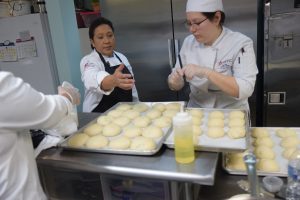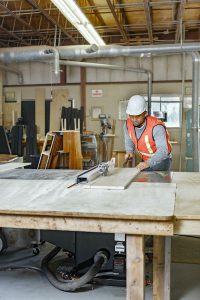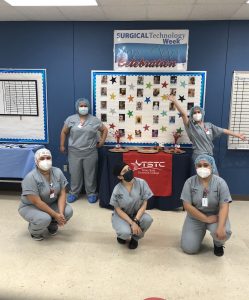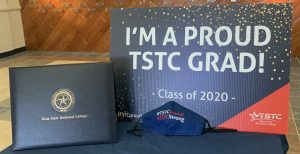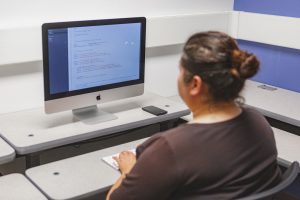(HARLINGEN, Texas) – Magic Valley Electric Cooperative (MVEC) recently gave $20,000 to The TSTC Foundation for scholarships in Texas State Technical College’s Electrical Lineworker Technology program. The funds will benefit deserving students who one day hope to become part of the booming lineworker industry.
TSTC senior field development officer Richard Mesquias said that The TSTC Foundation is grateful for this gift.
“The funding will enable us to help TSTC in its work to prepare students for the workforce now and in the future,” he said. “This scholarship fund will be used to provide financial assistance for tuition, books and tools to eligible students.”
Partnerships with businesses like MVEC allow TSTC’s mission of training students for well-paying careers to continue. Mesquias reiterated that the number of jobs in this market is expected to climb, making these funds even more vital.
“Market demand for lineworker positions in Texas is expected to grow,” he said. “This means that TSTC graduates are quite attractive to Texas employers.”
MVEC general manager John Herrera said that one of the company’s most important goals is to empower the communities it serves.
“When TSTC reached out to us about investing in their Electrical Lineworker Technology program in the form of a scholarship fund, we did not hesitate,” he said. “We are honored to be part of the preparation and training of TSTC students toward a very rewarding career in the electric industry.”
TSTC Provost Cledia Hernandez said that the scholarship fund helps to accomplish two of TSTC’s biggest goals: student success and employer success.
“We focus on getting our students trained to go straight into the workforce and be prepared with the skills employers look for,” she said. “We also work very closely with industry partners to ensure that we get their input on the skills needed to make certain that our programs are aligned with their needs.”
Hernandez said that scholarships such as this allow TSTC students to fulfill their dreams.
“Our industry partners see the caliber of graduates TSTC produces, and they want to invest in our region’s future workforce,” she said. “They also see the financial need that many of our students face, and these scholarships will help them reach their career goals.”
Herrera spoke about how the occupation itself is unique.
“The program at TSTC can be life-changing for students,” he said. “Although it is hard work, the career of an electrical lineworker can be very rewarding, both professionally and financially. It is an opportunity to play a vital role in your local community and allows you to become part of the family of lineworkers across the nation.”
According to the U.S. Bureau of Labor Statistics, Texas is at the top of the list of states with the highest level of employment for electrical lineworkers, and the demand is expected to continue to grow.
To learn more about Electrical Lineworker Technology at TSTC, visit https://www.tstc.edu/programs/ElectricalLineworkerTechnology.



